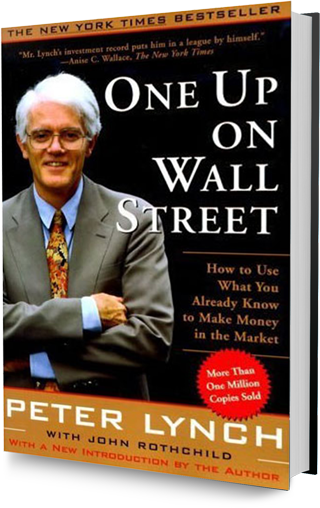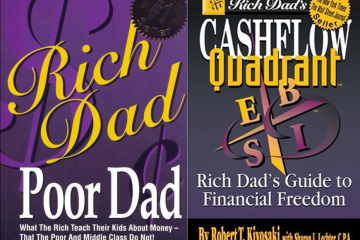Book To Read: One Up On Wall Street
Available at: Amazon.com | iBooks One Up On Wall Street is a book written by a professional Fund Manager, whose “invest in what you know” strategy has made him a household name with investors both big and small.
One Up On Wall Street is a book written by a professional Fund Manager, whose “invest in what you know” strategy has made him a household name with investors both big and small.
His credentials? A legend at Fidelity Investments, famous for managing the Magellan Fund at Fidelity Investments between 1977 and 1990, that averaged a return of 26.4%, which is double that of the S&P 500 at 13% per annum! His name is Peter Lynch.
This book is a real gem, both for the new and seasoned investor. Lynch teaches in this book that no one in the world is born with an inherent ability to pick stocks, and that one must be prepared to do the homework to understand the financial condition, current earnings and future potential, competitive landscape, and future expansion plans of the company before investing. This might sound like a daunting task to most people, but it is the secret ingredient behind making a successful stock investment.
Personally, I was intrigued by Lynch’s qualitative approach towards investing, which is on top of simply plucking key numbers off a company’s financial reports. Simply by starting from items that we utilise daily, one can identify companies who are likely to become the next “multibagger” as Lynch calls it.
One of the many important points that is mentioned in this book includes a section on the 6 categories of companies, which Lynch uses to classify a stock that he has identified with investment potential. Here’s a sneak preview:
- Fast Grower
Grows at 20-25% per year. Usually smaller enterprises that are aggressive in expansion. - Stalwart
Growing not as fast as a Fast Grower but at a faster rate than the Slow Grower, they usually hold out well during a recession.
- Slow Grower
As the name suggests, these are companies that grow really slowly, because they have already reached a size that expansion is difficult, though not impossible. They usually give out generous and regular dividends because they just can’t think of how else they can use the money to expand anymore. - Cyclical
Companies whose earnings expands and contracts in a regular but unpredictable fashion. You can easily earn more than 50% if you buy at the right part of the cycle, you could also just as easily lose the same percentage if you buy at the wrong part of the cycle! - Asset Play
Companies that has assets that has yet to be noticed by the professional fund managers. - Turnaround
Like a wounded giant, usually a company that is going through a period of tough challenges. One could be greatly rewarded if the giant is healed. Of course, there is always a danger that the giant never recovers, so invest wisely!
Though this book is written in 1989, some of the examples raised by Lynch can be easily replaced in today’s context by companies like VISA, Adobe, or in the context of Singapore, Breadtalk. Instead of taking stock tip about what is currently hot in the stock market, Lynch teaches the average investor to turn a deaf ear to brokers and look for ideas in companies that have “boring stories”. He mentions that understanding the story of a company is a lot easier if we can understand the basic business. For example, it will be easier for the average investor to understand the business of selling bread as opposed to satellite communications or oil and gas (unless of course if the individual is working in such a company).
So, no matter if you are new to the stock market or have been investing for a while, take a look around you, the brand of juice you drink, the manufacturer of your office stationery, or even the company that caters to your company events. You might just find the next winning investment opportunity!
We recommend this book to those who are looking to hone their qualitative analysis skills. It does cover some numbers like Book Value, P/E Ratio, and Earnings Ratio, but not in-depth. If you are looking for a good book to understand the quantitative side to complement what you learn in this book, take a look at Value Investing In Growth Companies by Victor Chng and Rusmin Ang.


